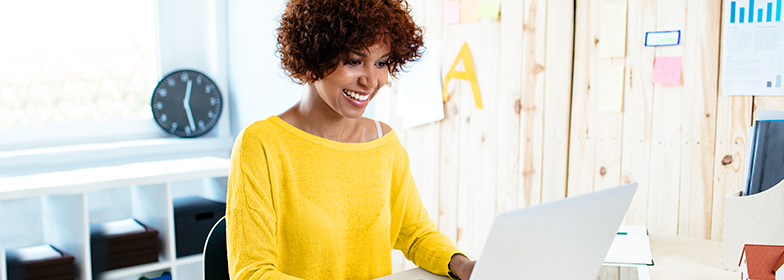
How to budget for buying your first home
When buying a home, creating a budget helps you make an informed decision that fits both your needs and your wallet. In this blog, we’ll break down the basics of why planning for homeownership is essential, how to get your finances ready to buy and how to determine your overall budget for buying a home.
The importance of budgeting for a home
By identifying your budget before you start home shopping, you’ll understand your options, making your home search more focused. Budgeting not only saves time but also directs your attention to properties within your price range, so you’ll be less likely to overextend yourself financially.
There’s a general rule of thumb that you shouldn’t spend more than 28 percent of your gross monthly income on housing expenses, including your monthly mortgage payment, property taxes, homeowners’ insurance and HOA fees, if applicable. However, everyone’s financial situation is different.
How to get your finances ready to buy
There are two essential things to know when preparing a budget to buy a house—what comes in and what goes out. The “what comes in” is your income. Gross monthly income is one of the primary ways to determine your maximum home loan amount. Other forms of earnings may be eligible income sources for a mortgage, not just your wages and salary. Your local loan officer can explain what income sources may be acceptable based on your mortgage type.
“What goes out” are your expenses, which might include groceries, auto and student loans, entertainment and the minimum payment amounts for your credit cards.
To create a budget specifically aimed at determining the amount you have available for a future mortgage payment, follow these five steps:
- Calculate your income: Start by writing down all of the money you receive regularly, including the items on this eligible income list.
- Track expenses: Next, record all of your spending for a month, including your debt payments.
- Deduct expenses from income: Subtract your total monthly expenses from your total income to determine the amount you have available for a future mortgage payment.
- Assess your financial goals: Use the remaining amount to gauge what mortgage payment is within your reach, ensuring it’s within your financial goals and allows for savings and emergency funds.
- Identify potential savings: Are there areas in which you can cut back or reduce spending to increase your savings?
How to determine your overall home budget
When budgeting for a mortgage payment, consider not just the mortgage itself but also additional costs like property taxes, insurance, and potential maintenance expenses associated with homeownership. The number you get from the pre-approval process tells you the maximum payment amount you can expect to borrow. To better understand how that translates to potential homes in your budget, it’s helpful to consider what else goes into buying a home. Be better prepared for homeownership by adding these expenses to your budget for buying a home.
1. Account for ongoing homeownership
2. Ask about HOA fees
3. Breakdown your monthly mortgage paymen
4. Calculate your closing costs
5. Manage moving expenses
Even if you’re only relocating across town, be sure to include all of your moving expenses in your budget for buying a home. Long-distance moving expenses are based on the weight of your belongings and the distance to your new home. So the farther you go and the more stuff you have, the bigger your moving budget needs to be. Moving.com recommends factoring in these fees.
- If you’re hiring professional movers, include a base moving fee and moving insurance.
- For do-it-yourself movers, include truck rental, gas and equipment rental.
- Other potential moving costs can include vehicle shipping, packing and supply costs and cleaning costs.
Decide on a down payment when you budget for buying a house
A down payment is a portion of your home’s purchase price that you pay upfront. The amount of your down payment will vary depending on your home’s appraisal price, the type of loan and your credit history. There are several home loans with low or no down payment options available.
While a larger down payment helps lower your borrowing costs and monthly payments, putting less down can have advantages. The main benefit is becoming a homeowner sooner, so you can start building home equity instead of paying rent.
Use our mortgage payment calculator to see how your total payment results change based on your down payment amount. Then, choose the right amount based on your financial situation.
Discuss the pre-approval process with a reputable mortgage lender
We’re committed to making homeownership more accessible to all. Our unique loan programs help homebuyers with down payment assistance, zero and low down payments, temporary buydowns and more. Questions before applying for pre-approval? Fill out the short form on this page, and a loan officer will be in touch!
The above information is for educational purposes only. All information, loan programs and interest rates are subject to change without notice. All loans subject to underwriter approval. Terms and conditions apply. Always consult an accountant or tax advisor for full eligibility requirements on tax deduction.
